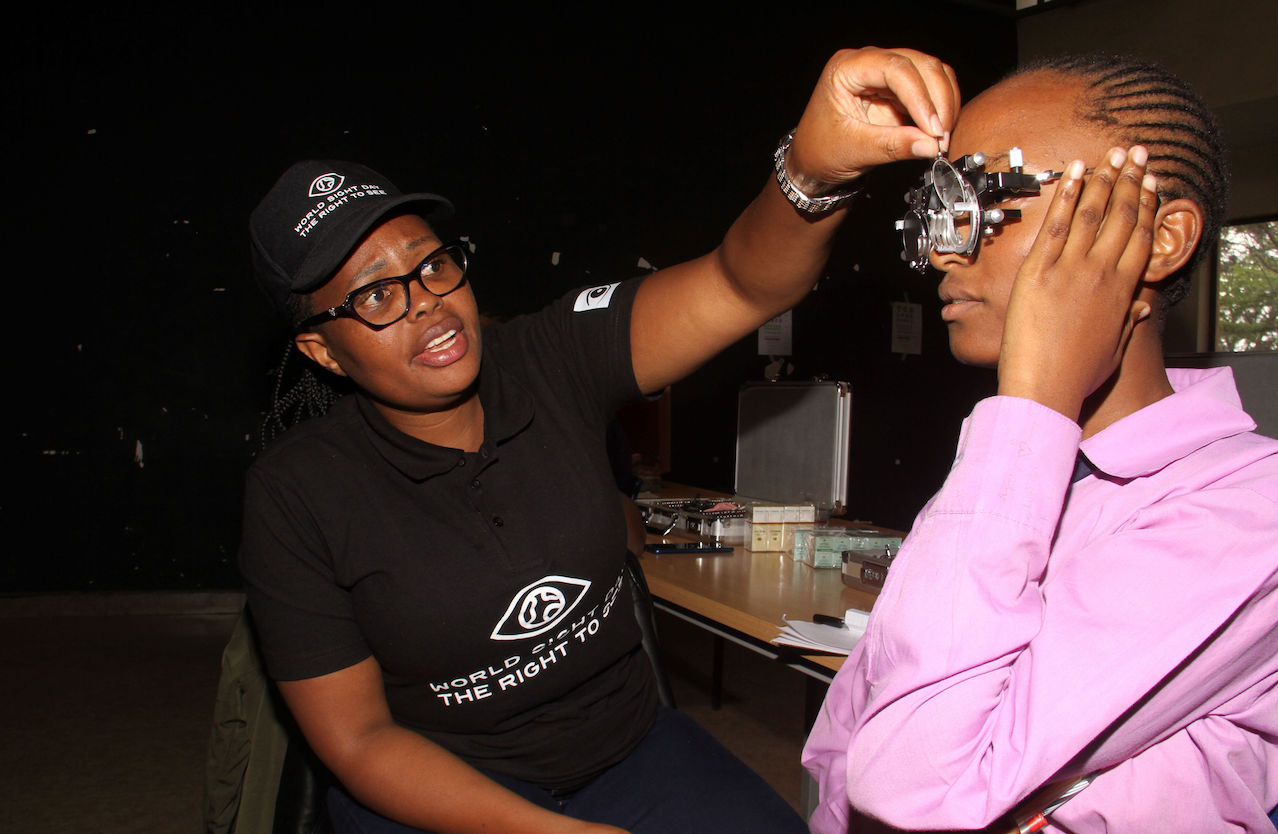

Approximately 7.5 million people in Kenya live with
avoidable sight loss, according to Value of Vision report launched during the
United Nations General Assembly
International Agency for the Prevention of Blindness (IAPB), Seva Foundation and Fred Hollows Foundation commissioned the report.
The report said delivering six simple, cost-effective eye health priorities like eye tests in schools and distributing on-the spot reading glasses could inject Sh33 billion into the Kenyan economy every year, with a Sh1,300 return for every Sh130 invested.
The report said personal and economic costs of sight loss are wide-ranging, including unemployment, lower educational attainment, reduced income, increased caregiving burden that predominantly falls to women, mental ill health, and increased risk of injury and illness.
“For Kenya, a Sh3.3 billion investment in delivery would generate annual gains of over Sh33 billion,” the report said.
It named six priority areas for governments to prevent sight loss as; early detection through vision screenings in the community, giving out reading glasses on the spot where needed, increasing capacity in the eye health workforce, boost surgical productivity and teams, removing barriers to accessing eye health like cost, distance and stigma, and making cataract surgery even better with innovative training techniques, wider use of biometry and stronger minimum post-operation care standards.
Nominated Senator Crystal Asige who is Secretary General of the Kenya Disabled Parliamentarians Association and Chairperson for Persons with Disabilities in the Kenya Women Parliamentary Association regretted that eye care is often taken for granted.
“It is a matter we can no longer overlook. The research is clear; investing in eye health brings significant returns for our entire country. As decision-makers, we must commit to implementing proven, cost-effective eye health priorities, like providing vision screenings in schools and distributing reading glasses where they are needed most,” she said.
President of the Optometrists Association of Kenya (OAK) Victor Opiyo said the solutions to sight loss are simple, affordable and life-changing.
“With the right investment, we can not only restore vision for millions of Kenyans but also unlock billions for our economy. Eye health is not a luxury- it is essential to education, productivity and the dignity of our people,” he said.
Opiyo added that by prioritising vision, Kenya could ensure that no child is held back in school, no worker loses their livelihood, and no family carries an unnecessary burden of care.
IAPB chief executive officer Peter Holland sight loss is a universal problem that impacts every part of the lives of people.
“We have clear solutions. Most sight loss can be prevented with simple and affordable interventions like expanding sight tests, providing glasses and improving cataract surgery. This World Sight Day, we urge everyone, from governments and businesses to schools and families, to make eye health a priority,” he said.
















